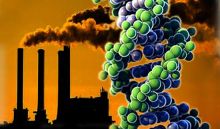
Heredity was once thought to be straightforward. Genes were passed in an immutable path from parents to you, and you were stuck – or blessed – with what you got. DNA didn’t change.
But now we know that’s not true. Epigenetic factors, such as your environment and your lifestyle, control how your genes are expressed. Meanwhile, the powerful tool CRISPR allows us to tinker with the genes themselves. DNA is no longer destiny.
Hear the results from the NASA twin study and what happened to astronaut Scott Kelly’s DNA after a year on the International Space Station. Plus, whether there’s evidence that epigenetic changes can be passed down. And, if we can wipe out deadly malaria by engineering the mosquito genome for sterility, should we do it?
Guests:
- Scott Kelly – Former military test pilot and astronaut and author of “Infinite Wonder”
- Carl Zimmer – Columnist for The New York Times, author of “She Has Her Mother’s Laugh: The Powers, Perversions, and Potential of Heredity"
- Christopher Mason – Associate professor of genetics and computational biology at Weill Cornell Medicine
- Michael Snyder – Chair of the genetics department and director of the Center for Genomics and Precision Medicine at Stanford University
- Nicole Gladish – PhD candidate, department of medical genetics, University of British Columbia
This episode brought to you in part by Hero Wars. Learn more about Hero Wars at hero-wars.com
Featuring music by Dewey Dellay and Jun Miyake
Big Picture Science is part of the Airwave Media podcast network. Please contact sales@advertisecast.com to inquire about advertising on Big Picture Science.
You can get early access to ad-free versions of every episode by joining us on Patreon. Thanks for your support!
originally aired October 15, 2018
